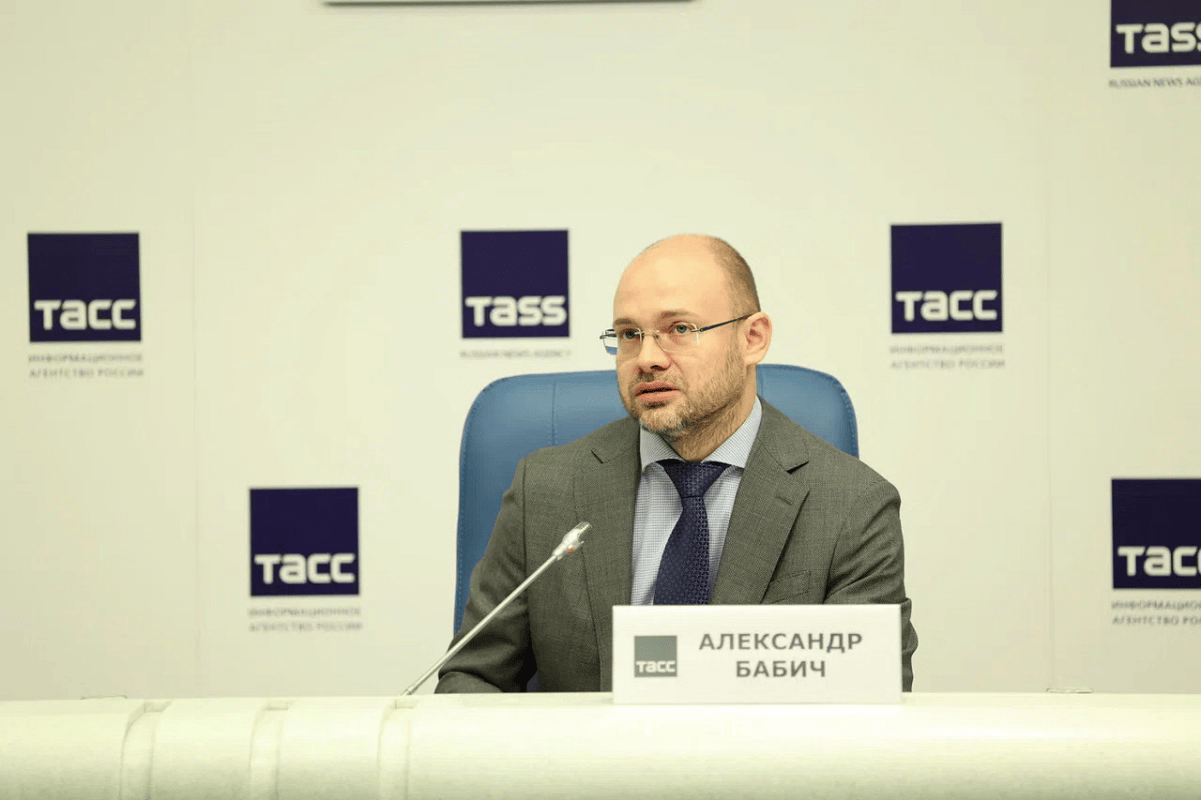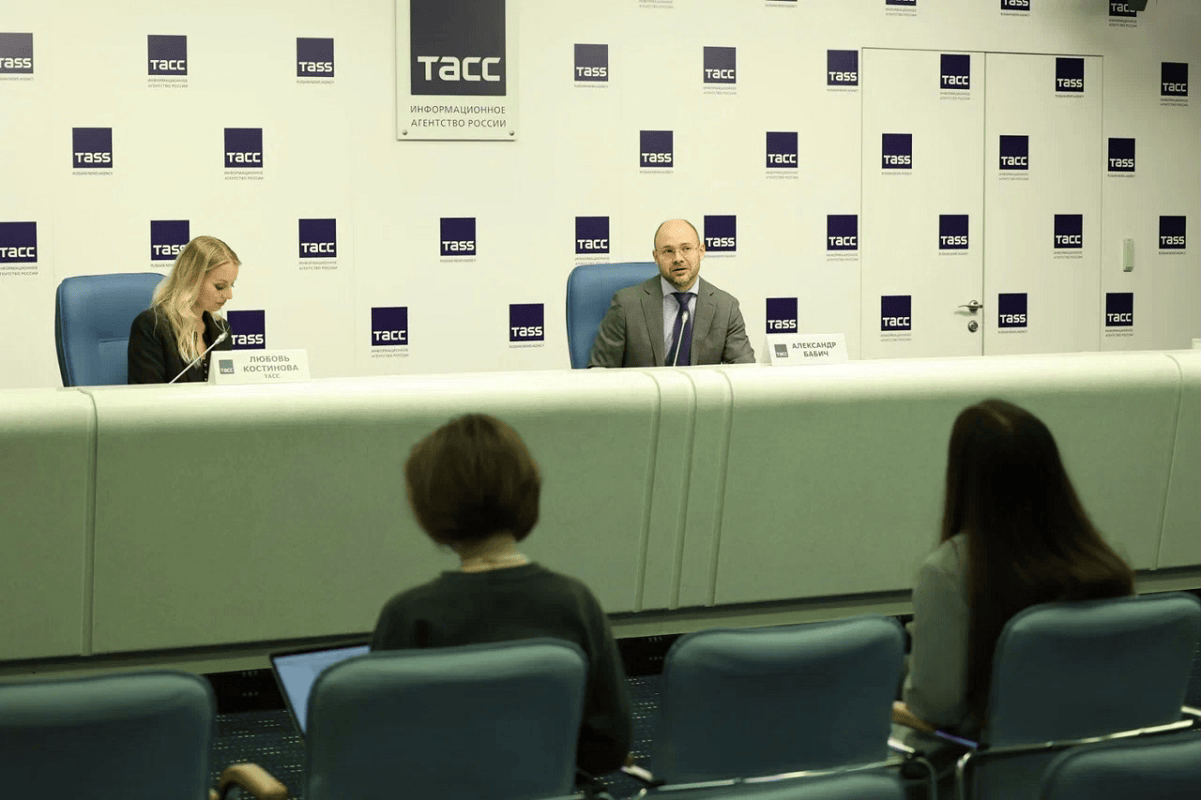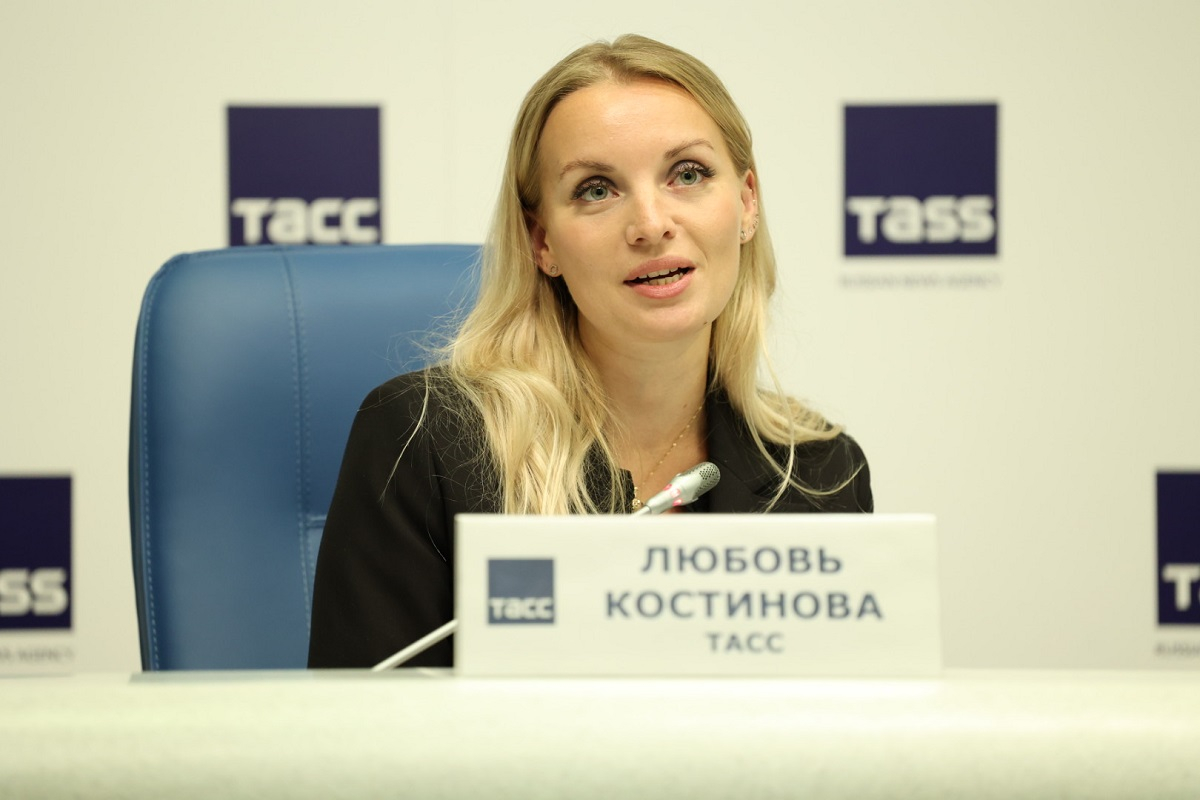113,000 applications — a new record for the admissions campaign at St Petersburg University
St Petersburg University has summed up the results of the 2024 admissions campaign. The University broke its own record. The number of applications received for the bachelor’s and specialist’s programmes exceeded 113,000, which is 7% more than last year. These results were announced at a press conference at the TASS Russian News Agency by Aleksandr Babich, Senior Vice-Rector for Youth Policy and Admissions at St Petersburg University.
"This year, St Petersburg University has accepted more than 5,100 students to bachelor’s and specialist’s programmes. The students are from 89 regions of Russia. 2,373 students will study on a government-funded basis, while 2,761 students will study on a fee-paying basis. The interest of applicants and their parents in studying on a fee-paying basis has increased. According to the results of this admissions campaign, 20% more students were enrolled on a fee-paying basis than last year," said Aleksandr Babich, Senior Vice-Rector for Youth Policy and Admissions at St Petersburg University.
Applicants who are citizens of the Russian Federation could submit their documents for bachelor’s and specialist’s programmes via the super service "Enter the university online" of the Public Services Portal. About 104,000 applications were submitted through the super service, i.e. about 92% of the total number of applications for bachelor’s and specialist’s programmes. 732 applications for employer-sponsored education were received at St Petersburg University through the super service "Work in Russia".
Every year, talented applicants from all over Russia enter St Petersburg University. In 2024, about 75% of those admitted on a government-funded basis live outside St Petersburg. The largest number of those applicants are from the Leningrad Region, Moscow, Krasnodar Krai, the Samara Region, the Chelyabinsk Region, the Rostov Region, the Republic of Tatarstan, the Republic of Bashkortostan, Perm Krai, the Sverdlovsk Region, and the Moscow Region.
In the new academic year, about 2,230 foreign citizens from 106 countries will begin studying at all levels of higher education at St Petersburg University. The University has enrolled 1,230 students on a government-funded basis within the quota of the Government of the Russian Federation. The University admitted 1,000 foreign citizens on a fee-paying basis. In 2024, the quota volume was increased by 23% compared to last year’s volume.
As part of the selection process at the discretion of the University, about 8,700 applications were received from international applicants, which is almost 40% more than in 2023. Citizens of more than 120 countries took part in the competition, including Australia, Albania, Brazil, Bahrain, Hungary, Venezuela, Vietnam, Germany, Greece, Denmark, Egypt, Zambia, Israel, India, Indonesia, Iran, Spain, Italy, Cameroon, South Korea, Morocco, Mexico, Namibia, Norway, the UAE, Portugal, Romania, Senegal, Serbia, the USA, Peru, Türkiye, France, Croatia, the Czech Republic, Chile, Ecuador, and Japan to name just a few. In total, applicants from 140 countries applied to the University.
In 2014, the geography of the competition has expanded. Citizens of 23 countries that did not previously participate in the competition have been accepted on a fee-paying basis. Among these countries are the following: Albania, Bahrain, Burundi, Bhutan, Kuwait, Libya, Malta, Myanmar, the Netherlands, Portugal, Slovenia, Suriname, Finland, Croatia, Switzerland, and South Sudan to name just a few.
Last year, St Petersburg University was the leader among Russian universities in terms of the number of applications from international students. The competition for places within the state quota for the selection process at the discretion of the University and the quota of the Federal Agency for the Commonwealth of Independent States Affairs, Compatriots Living Abroad, and International Humanitarian Cooperation was about 21,000 people per 1,000 places, or 21 people per place. Through the Federal Agency for the Commonwealth of Independent States Affairs, Compatriots Living Abroad, and International Humanitarian Cooperation, the competition was about 80 people per place. The results for 2024 will be announced after the end of the admissions campaign.
The largest number of applications, i.e. 3,128, as in the previous year, was submitted to the academic programme "Applied Mathematics, Programming, and Artificial Intelligence". Among the most popular programmes in terms of the number of applications are "Applied Mathematics, Fundamental Informatics and Programming" (3,110 applications); "Law" (2,632 applications); "Modern Programming" (2,348); and "Artificial Intelligence and Data Science" (2,075). Such academic programmes as "Foreign Languages in Global Communications", "English as a Foreign Language in Teaching and Communication", "English Language and Literature" are the leaders in terms of the number of applications per place on a government-funded basis.
The number of applications submitted per budget place is often used to assess the demand for academic programmes, said Aleksandr Babich. It is a mistake to think that the more applications are submitted, the more competitive the academic programme is. The calculation of the competitiveness indicator is influenced by factors specific to each university. Firstly, this is the number of places which documents are accepted for. Secondly, the number of areas of study which an applicant can apply for at one university. This year and last year, universities could allow applications to be submitted for up to five areas of study. For many years, St Petersburg University has allowed applications to be submitted for three areas of study. Thirdly, the indicator depends on the minimum Unified State Exam score required for admission to the competition at a university. The lower this score, the more applications will be submitted. At St Petersburg University, the average score for admission to the competition is 70 for each of the Unified State Exam subjects, and for some academic programmes, it is 80 points for each subject.
This year, the average score of those admitted to the University once again exceeded 90 points.
For example, for the programme "Software Engineering", it is 97; for the programme "Advertising and Public Relations", it is 97.95; and for the programme "Mathematics", it is 98.82. The areas of study with the highest average Unified State Exam score (over 92) include the following: Cartography and Geoinformatics, Mathematics and Computer Science, Law, Chemistry, History of Arts, Dental Medicine, Philology, International Relations, Linguistics, History, Translation/Interpreting and Translation Studies, and General Medicine. In 2024, 69.83% of those admitted on a government-funded basis received additional points for individual achievements. Such achievements include, for example, having a school certificate with honours, winning the all-Russian school Olympiad, membership in the Russian national team in Olympic sports, having the status of champion and medallist of the Olympic Games, world champion, and European champion to name just a few.
The total number of winners and prize-takers of international and all-Russian school Olympiads enrolled without entrance examinations has increased by more than 11% this year. Among them is the winner of the 2024 International Mathematics Competition and the silver medallist of the 2024 International Mathematics Competition. The most popular programmes among the winners of school Olympiads were Mathematics, Data Science, Chemistry, Law, and History.
In 2024, admission to the bachelor’s and master’s programmes was held for the first time at the branch of St Petersburg University in the Republic of Uzbekistan. 120 students will study at the branch. The competition was about 5 people per place. Admission was held in the following areas: "Economics", "Law", "Asian and African Studies", and "Fundamental Informatics and Information Technology". Not only citizens of the Republic of Uzbekistan, but also citizens of other countries apply for study at the branch of St Petersburg University in Tashkent. This year, applications were received from applicants from Ghana, India, China, Côte d’Ivoire, Mexico, Nigeria, and Turkmenistan.




